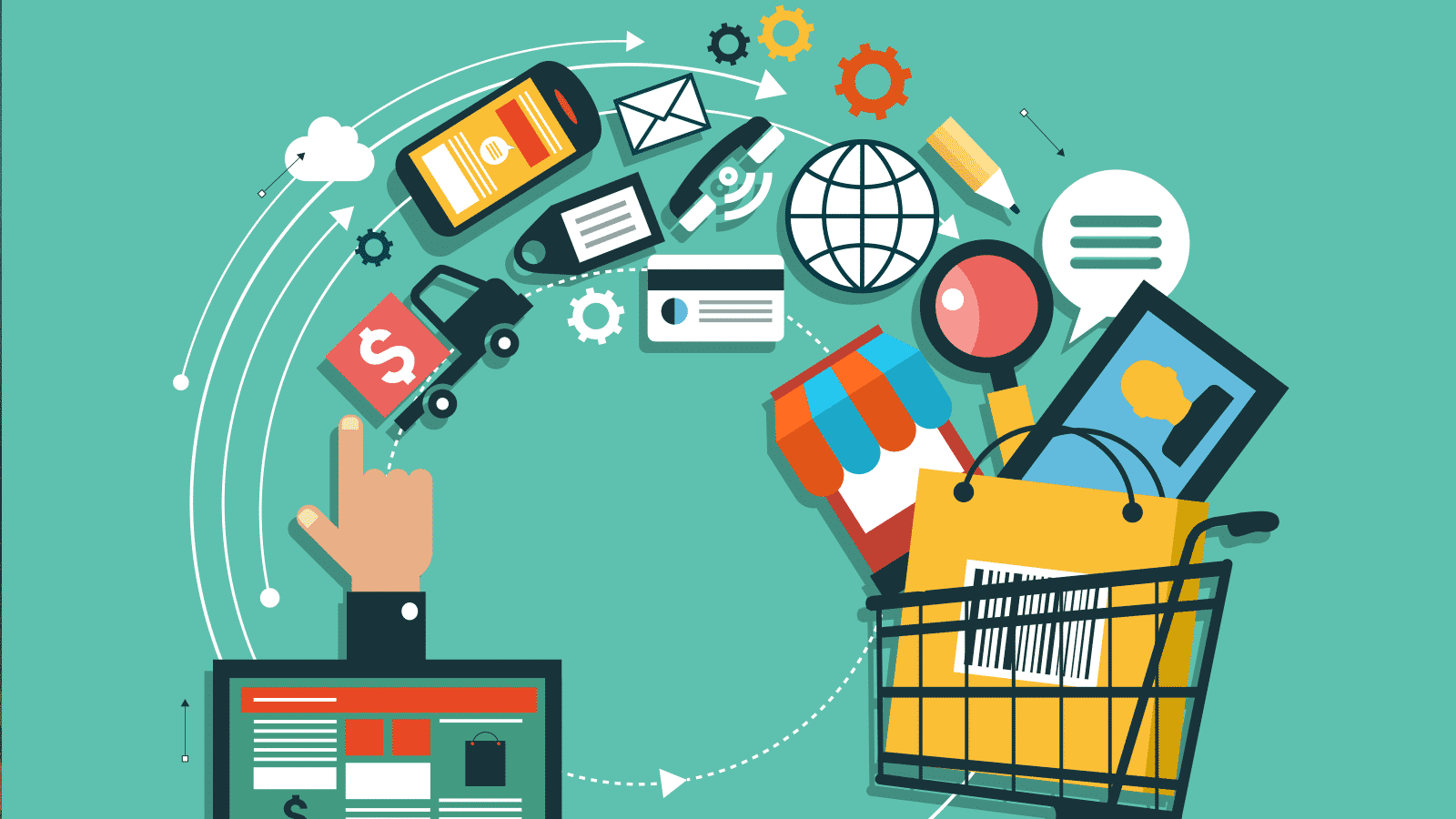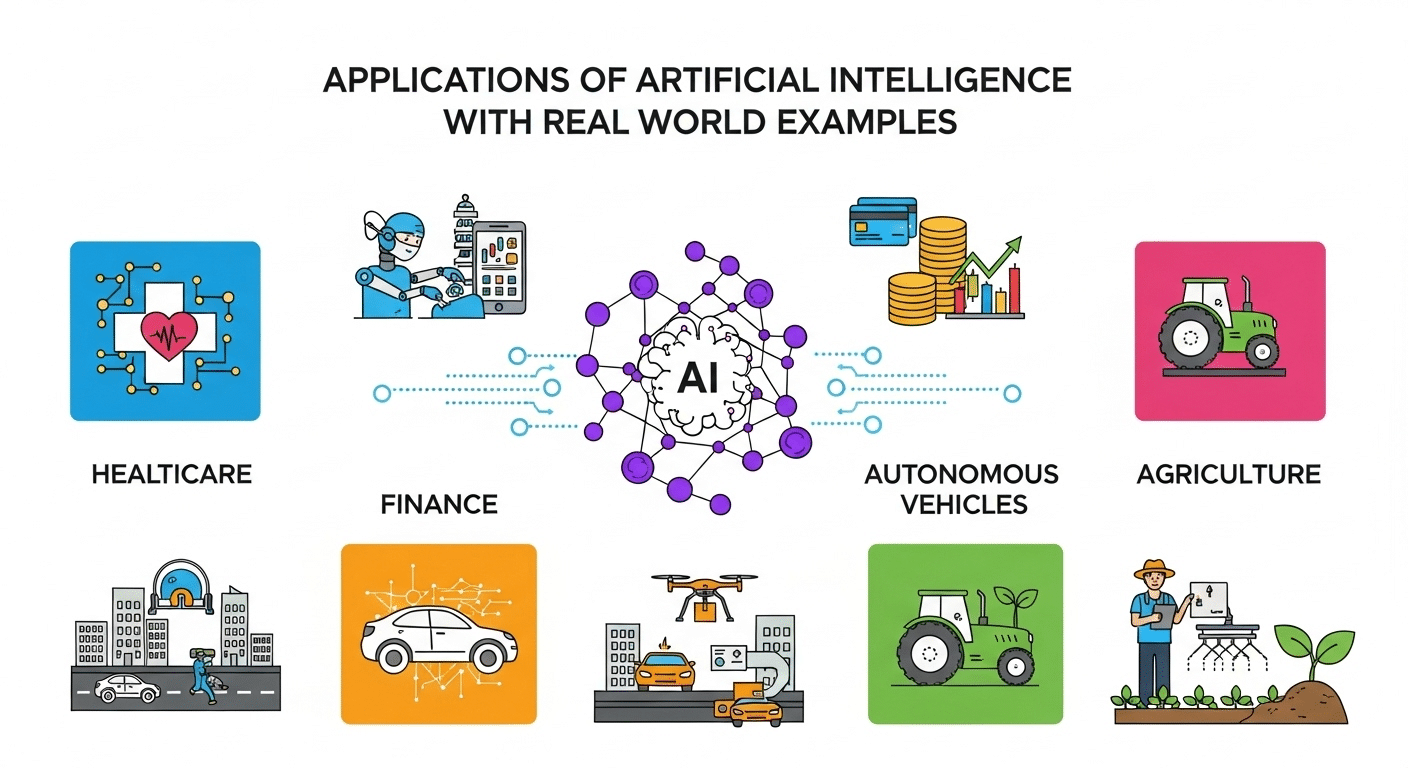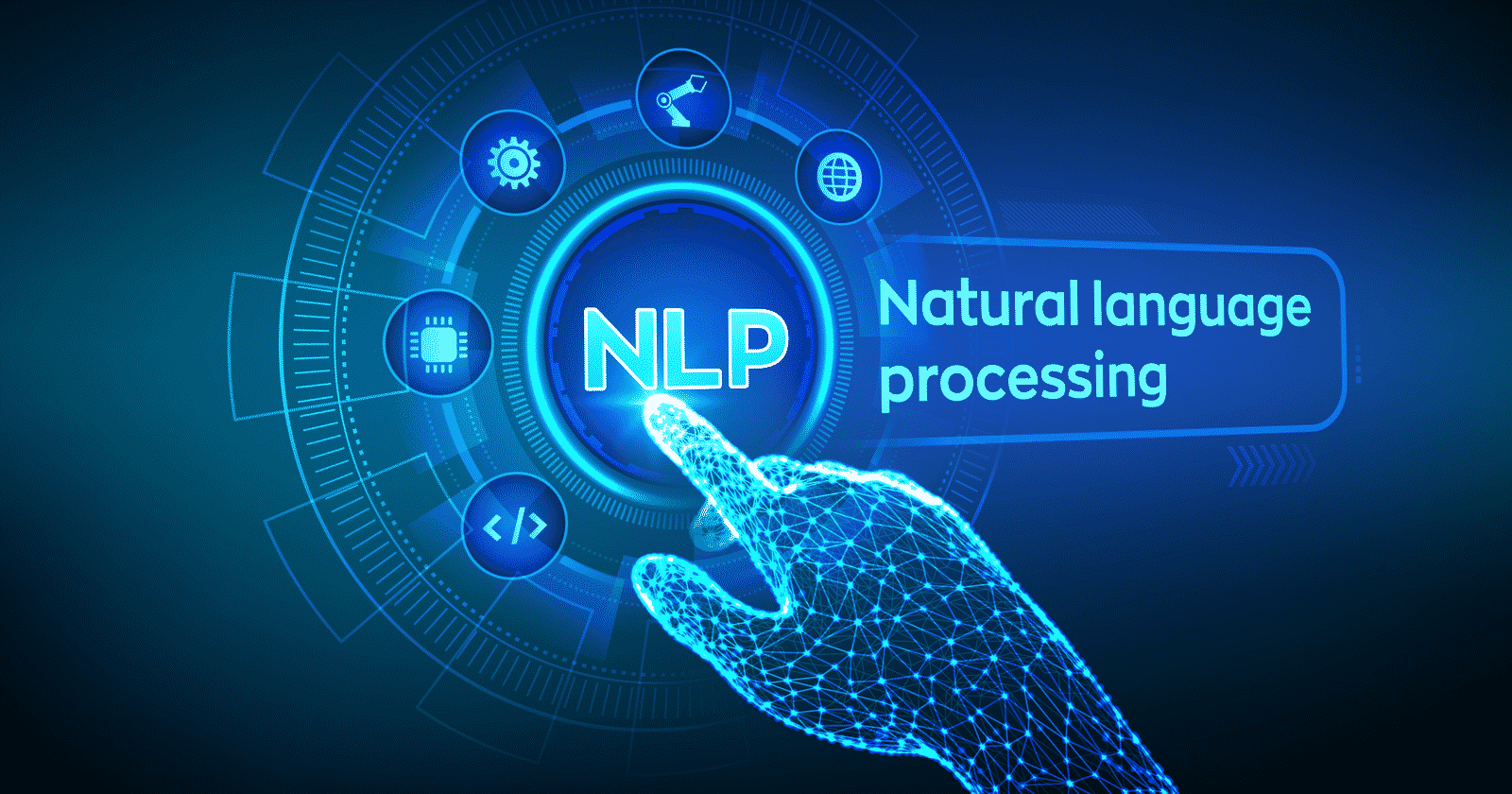Unless you've been living under a rock for the last couple of years, you surely would have heard of Artificial Intelligence (AI). As it has begun to enter into all aspects of life, the one most interesting area that it has bumped into is eCommerce.
AI for Everyone: Learn AI Essentials
Learn how AI for Everyone makes artificial intelligence accessible to all. Learn how AI can enhance your life, work, and creativity, regardless of technical skills.
Companies like Facebook and IBM have expressed their desire on developing artificial intelligence as a new source of business. The purchase of DeepMind by Google also tells the same story: that the world from now is going to be driven by artificial intelligence.
In times when online businesses are growing and there is aggressive competition amongst the top E-commerce players, it goes without saying that they'll be out of the race if they do not keep up with the updated technology.
But How Can You Use AI in eCommerce?
In this article, we'll talk about 15 powerful ways in which AI applications are going to dominate the eCommerce industry in 2025.
Read our comprehensive list:
1. Increase in volume of voice search
Today, people are relying on voice assistants like Alexa, Siri to know their daily schedule or find out about a product to buy it online. Loup Ventures1 had released an updated speaker sales forecast model that had estimated that 75% people in the US will own a smart speaker, generating $35.5 billion revenue in 2025. So as more households get hold of this technology, there are chances of a breakthrough in the eCommerce businesses.
2. Conversational chatbots
Many top names in different industries like Starbucks, Sephora, Domino’s have adopted chatbots to benefit their eCommerce business. The customer can ask any question regarding a product to a bot and get a prompt response. This can definitely affect the customer's decision to make a purchase or not as they are given quick answers to their queries.
3. Recommendation systems
They are one of the easiest ways to convert AI capabilities into sales. This is one of the main reasons why companies have been investing in them since the early 2000s.
4. Auto-generated product descriptions
Customers use product descriptions to make purchase decisions. It is an important means to influence customers. By utilizing AI tools for content generation, eCommerce can leverage the power of AI to create descriptions that address the interest of the buyer.
5. Image tagging or image recognition
If you're a regular Pinterest user, you must be aware of this feature. So what it does is that it allows users to select an item from any online photo and use it image recognition software to identify similar items. The eCommerce industry can also make use of such systems to provide an enhanced customer experience.
6. Personalized search
Businesses can use AI-powered search engines, such as ecommerce site search solutions, to combine search with machine learning capabilities, making internal website research more personalized.
7. Mobile shopping witnessing a rise
Based on a 2019 report by Statista, it is estimated that, 73% of eCommerce purchases will happen through mobile devices. This means that customers will be provided with a smoother user experience on their mobiles so that they can shop on their phones as easily as they do on their desktops.
8. Introduction of virtual personal shoppers
AI is enabling different eCommerce brands to knowingly build AI-enabled, smart shoppers. It will just be like a customer engaging in a conversation with a shop assistant to enquire about a specific item in an offline store. These smart virtual shoppers will engage with the customers actively. For instance, instead of making selections by ticking boxes or entering specific words, customers will now be able to talk to these virtual assistants and solve customer queries!
9. Upgraded delivery method
We all agree that once we buy any product on any eCommerce website, we want it to be delivered as soon as possible. Amazon even offers prime membership that allows customers to avail same day or one day delivery. Now, the future application of AI will witness robots delivering products at your doorstep; thanks to the power of AI and data-driven innovation.
10. VR and AR
The use of virtual reality and augmented reality can be used to create systems that give customers an illusion of shopping in the real store! Imagine sitting on your couch and buying your favorite product, by trying them on virtually and having a smooth shopping experience. This is one of the hottest applications of AI for eCommerce.
11. Sales generation through wearable technology
Wearable technology will prove very beneficial for eCommerce platforms. Be it FitBit or Apple Watch, these all wearables can track the products you view, and use that to recommend personalized products. By integrating wearable computing devices with CRM systems, the eCommerce industry can have real-time access to customer data and systematically identify opportunities for selling its products.
12. Handling fake reviews
A customer's buying decision is influenced by the reviews they read online on any eCommerce platform. There are multiple cases where there are negative reviews of the product, But what if those reviews are prompting your customers to refrain from buying that product? This activity is called astroturfing and there are many eCommerce players that take the help of AI to tackle fake reviews so that the customers can make an unbiased decision.
13. Easier checkout
A study based on Baymard Institute's research2 conveys that 21% of online shoppers in the US have abandoned an order just the checkout process took forever or was complicated. An easier checkout would not only improve the sales of products on the eCommerce website but also ensure that customers get a smooth shopping experience. Amazon has already entered this zone with its Amazon Go app that creates the experience of 'Just Walk Out'3 Shopping.
14. Re-commerce
As the name suggests, re-commerce refers to the resale of products that were owned by others previously. The reason I add this application to this list is because eCommerce stores can work with AI to design, develop, and implement systems that explore this opportunity. With the world leaning towards sustainability & environmental friendliness, this can be one thing to watch out for in 2025.
15. Social Commerce
You are on your insta feed, and then you come across some piece of clothing or accessory that you've been looking for sometime over the Internet.
What do you do next?
Contact the seller and make the purchase.
According to research by Statista, Instagram has 1 billion monthly accounts that are selling actively through their social media handles. As per Retail TouchPoints' exclusive survey4, "Next -Gen Omnichannel Strategies Align Agility with Innovation" sponsored by Cegid, TimeTrade and Arm Treasure Data, published in Jan 2019, the percentage of retailers in North America that used social media as a source of eCommerce nearly doubled from 17% in 2017 to 33% in 2018 and will clearly grow as the years pass and social media becomes more powerful.
What Next?
After reading these top powerful AI applications for eCommerce in 2025, you must be enticed to learn more about this technology. For that, all you need to do is check out the Post Graduate Program in Artificial Intelligence & Machine Learning: Business Applications and sign up for a world-class AI program by one of the top universities in the US for MS.
This program, famously known as the PGP-AIML, is one of the best AI courses in the US. It has given a professional direction to a lot of learners across the globe. You get to interact with mentors in the AI industry during the program.
Get to know more about the program mentors here.
You can also read about the present in-demand skills and tools, job opportunities, salary trends and more in the career guide here.
Hope to see you on the other side, making transformations in the tech industry in 2025 with the Post Graduate Program in Artificial Intelligence & Machine Learning: Business Applications course.
Source:






